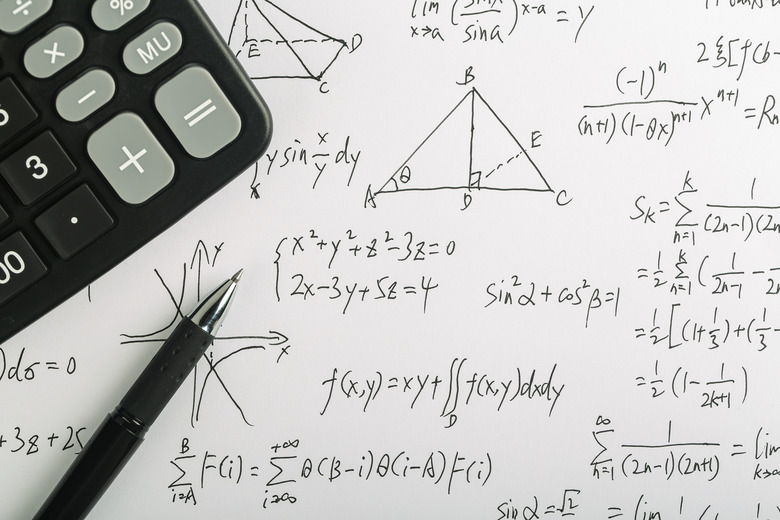How To Differentiate Negative Exponentials
Differentiation is one of the key components of calculus. Differentiation is a mathematical process for discovering how a mathematical function changes at a particular instant in time. This process can be applied to many different types of functions, including the exponential function (y = e^x, in mathematical terms), which has a particularly important place in calculus, as the function remains the same when differentiated. Negative exponentials (that is, an exponential taken to a negative power) are a special case of this process, but are relatively straightforward to calculate.
Step 1
Write down the function you will be differentiating. As an example, assume the function is e to the negative x, or y = e^(-x).
Step 2
Differentiate the equation. This question is an example of the chain rule in calculus, where one function is located within another function; in mathematical notation, this is written as f(g(x)), where g(x) is a function within the function f. The chain rule is written as
y' = f'(g(x)) * g'(x),
where the ' indicates differentiation and * indicates multiplication. Therefore, differentiate the function in the exponent and multiply this by the original exponent. In equation form, this is written as y = e^[f(x)]*f'(x)
Applying this to the function y = e(-x) gives the equation y' = e^x *(-1), since the derivative of -x is -1 and the derivative of e^x is e^x.
Step 3
Simplify the differentiated function:
y = e^(-x) * (-1) gives y = -e^(-x).
Therefore, this is the derivative of the negative exponential.
Cite This Article
MLA
Bourdin, Thomas. "How To Differentiate Negative Exponentials" sciencing.com, https://www.sciencing.com/differentiate-negative-exponentials-8109519/. 13 March 2018.
APA
Bourdin, Thomas. (2018, March 13). How To Differentiate Negative Exponentials. sciencing.com. Retrieved from https://www.sciencing.com/differentiate-negative-exponentials-8109519/
Chicago
Bourdin, Thomas. How To Differentiate Negative Exponentials last modified August 30, 2022. https://www.sciencing.com/differentiate-negative-exponentials-8109519/
